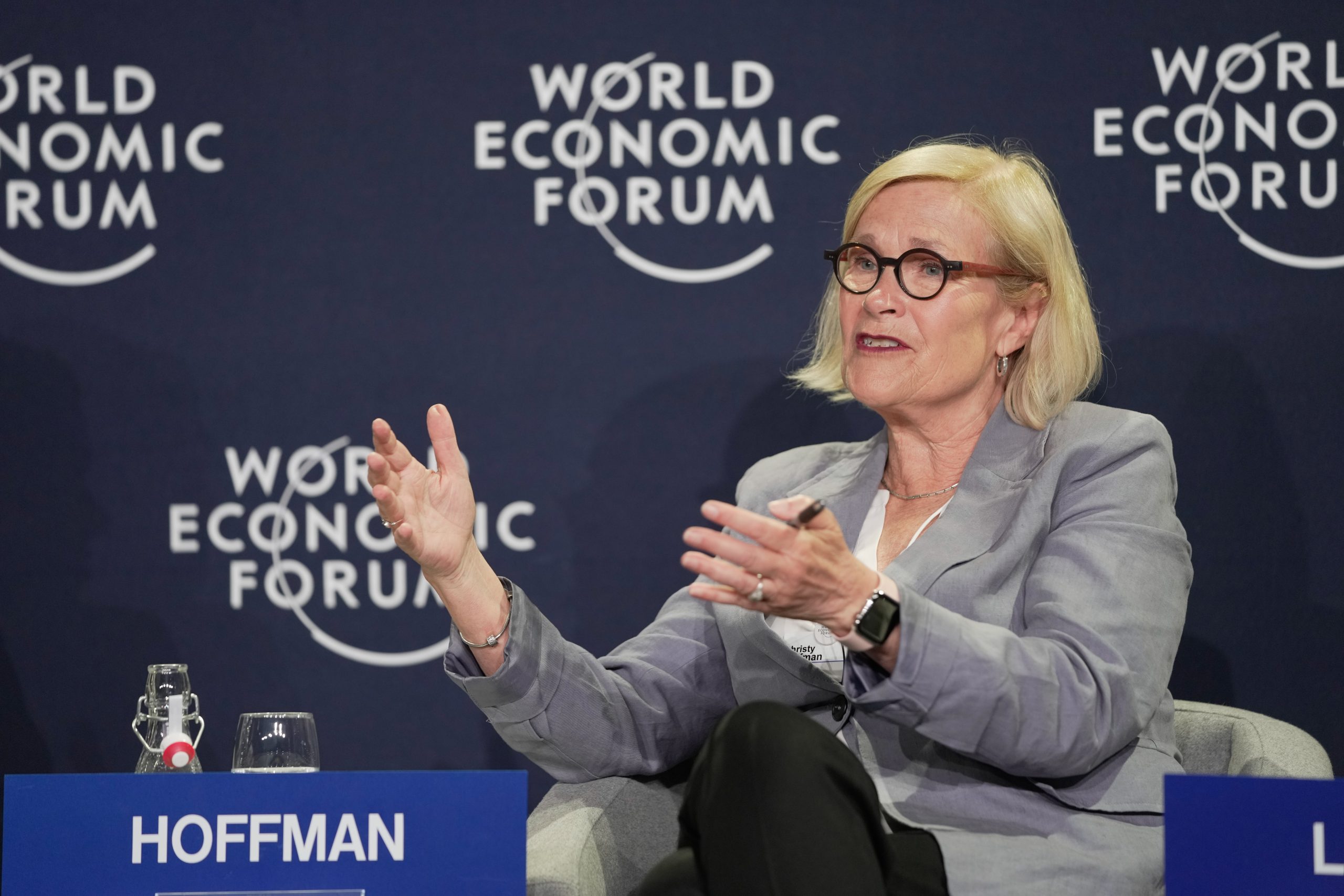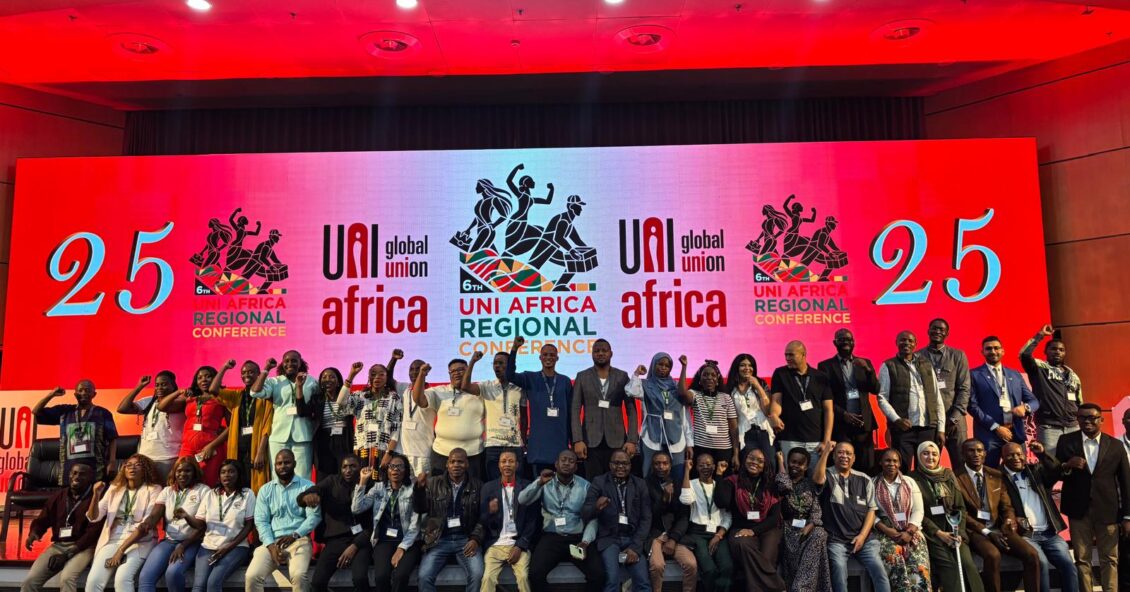Collective bargaining for the common good – Christy Hoffman brings UNI’s message to World Economic Forum in Davos
27.05.22
Speaking at the World Economic Forum’s annual meeting in Davos this week, UNI Global Union General Secretary Christy Hoffman stressed the importance of collective bargaining, revaluing essential workers and a redistribution of wealth through taxation in the face of a cost-of-living crisis fuelled by the war in Ukraine.
Reflecting on this year’s theme of ‘history at a turning point’ at the annual gathering in the Swiss mountain village, Christy Hoffman said:
“Globally, workers are not at an inflection point, they are in a crisis. The house has been on fire for years, and it is time for the actions and policies of the political and business elite to reflect this reality. In country after country, prices are rising faster than wages. Invasive technology is ratcheting up pressure and pulling down standards. Attacks on workers’ rights are intensifying, and corporate power is concentrating in an ever-shrinking-number of hands.”
Speaking at a panel on Revaluing Essential Workers, that included former Irish Prime Minister Leo Varadkar, Hoffman said:
“Recognizing that collective bargaining is a collective good must be a key takeaway from Covid-19. Unions played a fundamental role during the pandemic to transform essential work and protect essential workers.”
The Covid pandemic exposed the lack of investment in the nursing home sector, which was already dangerously under-funded and understaffed. “Investment in care is vital to bring more women into the labour force,” said Hoffman. “But we need to invest more resources in care regardless–and make those jobs good jobs.”
In a second panel ‘Hybrid working—what happens next,’ Hoffman said that while most essential workers have no option but to go to work, there are many people who work remotely in egregious conditions. She underlined the case of UNI members in the call centre industry, who are subjected to increasing surveillance in the home and excessive monitoring by artificial intelligence.
“We don’t want new technologies to be punitive and default to set of management techniques that are highly invasive,” said Hoffman. “But instead lead to shared prosperity.”
Hoffman raised the need to put guardrails around remote working to avoid a never-ending workday, with many workers working longer hours remotely than they would at the office. With women more likely to take advantage of flexibility of working from home due to caring commitments, measures should be taken to makes sure they are not isolated from decision-making or miss out on promotion, said Hoffman.
As ever, the debate at Davos focussed on the war in Ukraine, which will increase poverty, income disparity and lead to economic hardship, making it ever more important for workers to organize to protect jobs, salaries and working conditions.


